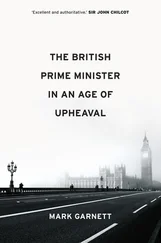After 1909, Asquith’s government went further. Harassed by continued public concern about nefarious German activities, it introduced the trappings of a secret state that previous successive governments had resisted for a century. Between 1909 and 1911, Asquith not only created the Secret Service Bureau, but also passed a draconian Official Secrets Act and allowed for much wider mail interception, something a Liberal government had banned as a diabolical infringement of liberties some fifty years before.27 The new Official Secrets Act, encouraged by Edmonds of MO(5), also helped the government to crack down on the press.28 Asquith, a facilitator rather than a dictatorial prime minister, also set up a new committee under Winston Churchill to consider how Britain would tackle ‘Aliens in Time of War’. With foreigners and exiles at the heart of this scare, the government created a register of aliens living in Britain. By 1913, it would have 11,000 Germans on this list, and had already prepared internment legislation.29 Notwithstanding domestic spy-fever, on the eve of the First World War much British intelligence activity lay elsewhere. Intrepid consuls, attachés and military officers carried out most of the spying on German armament programmes, while MI6 relied on the collection of specialist journals by travellers, or open observations, rather than actual espionage. Despite a lack of coordinated assessment, this material gradually filtered up into the higher reaches of government and influenced Britain’s diplomatic and strategic behaviour.30
The most immediate physical threat to Asquith came not from swarms of German spies, but from other quarters, notably the suffragette movement. In September 1909, two women were busy improving their shooting skills at a rifle range at 92 Tottenham Court Road with the rather improbable name of ‘Fairyland’. They intended to assassinate the prime minister, who was a firm opponent of votes for women. The two would-be assassins planned to join a group of suffragettes who had been picketing the gates of Parliament for eight weeks. Asquith passed them frequently, and therefore presented a tempting close-range target. Fortunately for the prime minister, the police received a tip-off. The informant was a Mrs Moore, a member of the Women’s Freedom League, but also a close friend of Asquith’s sister-in-law. She was an advocate of peaceful protest, and spent a great deal of time trying to dissuade her fellow suffragettes from violent acts.
Moore produced a letter from one of the two women who had been practising with a revolver.31 She refused to name names, but the police made enquiries at the shooting range, whose owner, Henry Morley, told them that two suffragettes had indeed been practising with a Browning automatic pistol. Their alarm was increased by the knowledge that the same range, and the same type of pistol, had been used only months earlier by an assassin who had killed Sir William Curzon-Wylie, aide to the secretary of state for India. Although undercover officers hung about for some days afterwards, neither woman returned. This left Asquith’s government with a dilemma familiar to later administrations dealing with terrorist threats. They knew full well that there would be serious recriminations if they did nothing and the prime minister was assassinated. The police did not remove the protesters from outside Parliament, but increased the number of officers there instead. They did not wish to give prominence to the idea of assassination, fearing that publicity might ‘act on the minds of these half-insane women, and might suggest effectively the commission of the very act which we wish to prevent’. Moreover, the removal of the pickets would be looked on by the women as an act of violence and injustice, and would ‘make them furious and more ready to commit such a crime’. In addition, the government thought that if there was an assassin, it would be easier to stop her if police knew she would be amongst the picketers, rather than walking ‘up and down between the House of Parliament and Downing Street at the hour when the P.M. may be expected to drive down’. Thanks to Mrs Moore, the prime minister remained able to pass in and out of Parliament unscathed.32 Recent research shows that the suffragettes included some notably dangerous groups, who fire-bombed churches and later sent a letter-bomb to Lloyd George. Some of the more violent women would go on to become active supporters of the extreme right, including Oswald Mosley’s blackshirts.33 Yet, remarkably, Asquith and all his successors through to the Second World War remained largely unprotected.
It was an act of assassination that finally triggered the outbreak of war in August 1914. Intelligence now had a more crucial – and real – role to play. The new secret services quickly pounced upon the small German espionage network in London, and rounded up all twenty-two known agents. The authorities had been assiduously following this spy ring, run from a barber shop in London by a naturalised German, since 1911. In an early intelligence success story, close monitoring had prevented the ring from passing useful information on to Berlin. Several hundred people were placed under surveillance. Predictably, the biggest problem was public paranoia. In the first two weeks of the war, the Metropolitan Police were forced to investigate thousands of people, with little to show for it. The newspapers followed this eagerly, and noted with satisfaction that by the end of November 1914 there had been over 100,000 reports of espionage, with 6,000 homes entered and searched.
Popular enthusiasm for war, combined with paranoia about spies, forced the Asquith government to look tough. Eleven German spies were shot at the Tower of London, a location chosen for its sinister appearance and reputation. More people were executed there during the First World War than under the Tudors. The amateurish German spies were not difficult to capture. They used lemon juice and peppermint oil instead of ink to render their reports to Berlin invisible, but were often arrested in possession of pen nibs corroded by the acidic lemon juice.34 Such tales allowed le Queux to continue to pump out his pulp-fiction spy thrillers. He maintained his phoney reputation as a spymaster to the end, and even now some of his relatives insist that he was assassinated by Russian agents in 1927.35
No one was safe from the paranoid public. Not even Charles Rennie Mackintosh, the Scottish architect and designer, who dared to sketch in the Suffolk village of Walberswick, close to the sea; or the composer Ralph Vaughan Williams, who sat down with a notebook to write ‘The Lark Ascending’ on cliffs near Margate. Both attracted vigorous police attention. Any Continental connection became a form of contagion. A Polish girl, who was a friend of the Asquith family, was fired from her teaching job simply out of fear that she might be mistaken for a German spy.36 The Asquith government stepped up internment, rounding up some 60,000 Germans living in Britain.37 Under popular pressure, and perhaps against his better judgement, the prime minister personally emphasised that all non-naturalised adult males ‘should, for their own safety, and that of the community, be segregated and interned, or, if over military age, repatriated’.38
The First World War triggered Britain’s tangible intelligence changes. MI5 had only fifteen staff prior to the conflict, but it soon expanded. The Post Office also assumed an intelligence function. It grew into a Censor’s Office that employed over 2,000 officials, each steaming, scanning and resealing some 150 letters per day. Britain now boasted a serious domestic surveillance apparatus.39 By the last year of the war, censorship employed 4,871 people, a sizeable engine of surveillance.40 In the empire, MI5 worked closely with security agencies in Delhi to thwart German plots to promote revolts amongst imperial subjects. With good intelligence to hand, Asquith’s government allowed the German Foreign Ministry to continue its ludicrously ambitious plans to promote insurrection on the subcontinent, content that they were unlikely to succeed.41
Читать дальше












